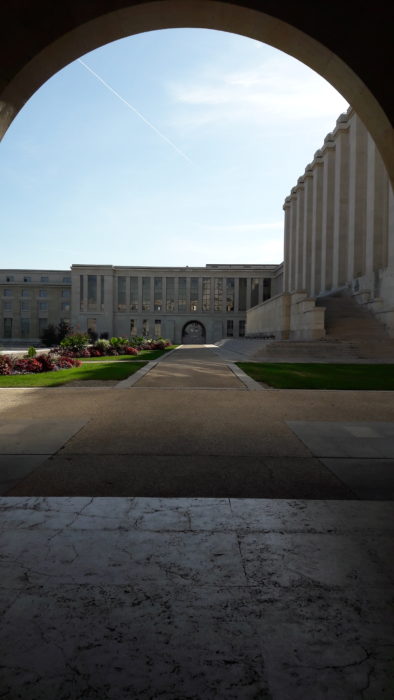Council sessions leave your head spinning. Anyone who gets through one without feeling like it was full body and soul experience wasn’t really there. And it’s particularly trying for the families we abandon to meet the Council’s callous workload. If, like me, you’re lucky enough to have an understanding partner, for the first few days you might make it home in time to be greeted by some home cooked left-overs at a semi respectable hour. Though by week 3, as I skulked in much too late to eat, I was much more likely to be dealing with the left-over remains of whatever the cat had bequeathed on the patio.
And what a weird and chaotic session it was. For a while it felt like we were being overwhelmed by a resolution breeding frenzy. While some states tried to react to most pressing crises of the day with strong resolutions, others sought to give their regional allies protection through much more weakly worded texts. Wherever you looked resolutions kept popping up in duplicate with no one really sure who was in charge of what. It felt like everyone was at it.
On the Democratic Republic of the Congo, the EU and the African Group managed to reconcile their competing resolutions and into one and reach agreement on continuing the UN’s human rights reporting in the country. The text wasn’t good enough for the US though, who called a vote as a result of the DRC’s inaction following the awful killing of two UN workers earlier this year.
On Burundi the outcome was particularly odd. The EU had presented a firm resolution to respond to the appalling situation in Burundi but members of the African Group put forward a much weaker resolution of their own. Things seemed to be going in the Burundi Government’s favour when the weaker resolution passed by vote. But then the EU’s resolution also passed and renewed the Councils Commission of Inquiry. Burundi had come into the Council wanting to evade scrutiny over the coming year, but now faces constant attention with no less than 6 debates on its situation next year. During the voting, the statement by Ambassador Molokomme of Botswana shone like a beacon in the session’s gloom. She explained that Botswana considered that the well-being of human beings deserved their support more than the regimes which persecuted them ,and that they would stand up for human rights even when this came at a high political cost.
The scale of the crisis in Yemen needed a united and strong response, and this was an important test for the Council to pass. For much of the session it looked impossible to bridge the differences between competing resolutions led by the Netherlands who supported the High Commissioner Zeid’s call for a Commission of Inquiry and the Arab Group who had been resistant. Negotiations went right to the wire but in the dying hours of the session, agreement was found as the Arab Group met the key Dutch demands and accepted the call for a Group of International Experts to be set up.
Throughout the session, the distressing plight of the Burmese Rohingya dominated global news. Under EU leadership the Council extended the Fact Finding Mission on Burma which it set up in March for 6 more months, with a unanimous call on the Burmese authorities to grant access. Encouragingly Pakistan, Malaysia and Bangladesh who usually oppose singling out countries for criticism, were among those who backed the text. But it was regrettable that Burma once again said it opposed to the Council’s action.
Elsewhere in Asia the Council renewed its Special Rapporteur on Cambodia who will have a crucial role in the build up to elections next July. The political and human rights situation has deteriorated dramatically and the chances of fair elections are receding fast. There was a late disagreement between the US and Japan, who led on the resolution, about how much discussion on Cambodia there should be in the next few Council sessions. This led to a US amendment backed by EU and western Council members. It failed to pass, but this sent a clear signal that Cambodia will be under increased attention from now on.
There were some important thematic resolutions including one on reprisals and intimidation against those who cooperate with the UN on human rights. Sadly the trend of blunderbuss amendments continued, with 18 attempts to weaken the text by Russia, Egypt, India and others. There can be absolutely no excuses for reprisals so it was disturbing to have this brought into question by those who put forward such a large number of amendments, even if the vast majority failed. And there was a fine result for the Swiss led core group on the death penalty. This year’s resolution contained strong new wording condemning the use of the death penalty for crimes of blasphemy, adultery, apostasy and same sex relations. These acts should not be crimes at all and it is simply unjustifiable that they still carry the death penalty in some countries.
And so another session draws to a close. I’m looking forward to not being in the UN late at night any time soon, and eating again with my family. And getting home before my cat brings back its nightly gift.

